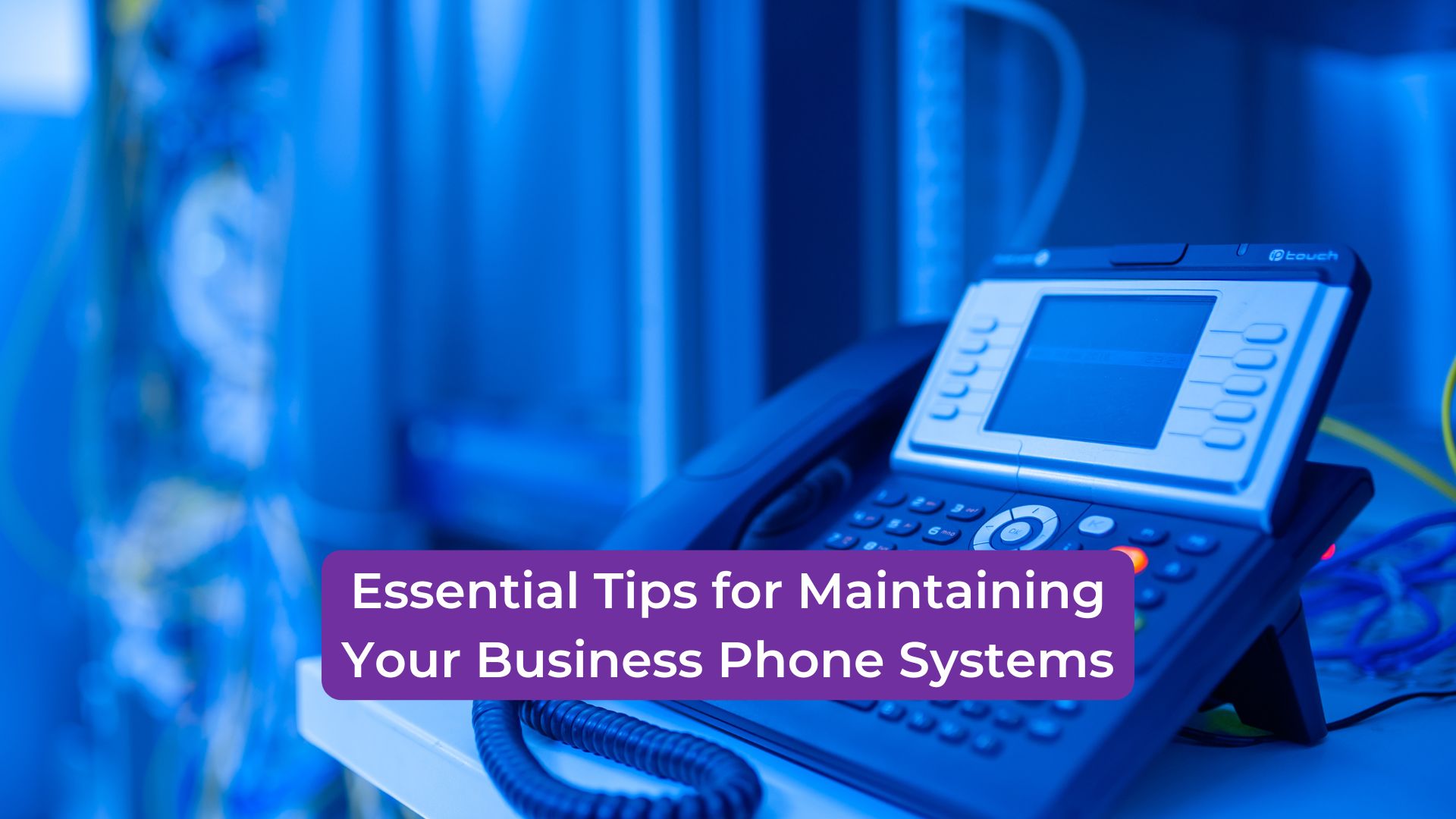In today’s fast-paced business environment, maintaining your business phone systems is critical to ensure seamless communication and efficient operations.
Business phone systems are the backbone of communication between your company, clients, and partners.
Whether you rely on them for internal communication or customer service, a well-maintained phone system can prevent downtime, increase productivity, and improve customer satisfaction.
In this blog, we will explore essential tips to help you keep your business phone systems running smoothly.
1. Regularly Update Software and Firmware
One of the most crucial aspects of maintaining your business phone systems is keeping the software and firmware up to date. Just like any other technology, phone systems are susceptible to security vulnerabilities and performance issues if they are not regularly updated.
Manufacturers often release updates to patch security holes, improve features, and enhance performance. Scheduling regular updates ensures that your business phone systems are running on the latest version, reducing the risk of issues.
2. Conduct Routine Hardware Checks
While software updates are essential, don’t overlook the importance of conducting routine hardware checks. Inspect phone handsets, headsets, routers, and switches for any signs of wear and tear.
Over time, hardware components may degrade, leading to connectivity problems or poor call quality. By conducting regular checks, you can identify and replace faulty hardware before it causes disruptions in your business communications.
3. Monitor Call Quality
Call quality is a critical indicator of the health of your business phone systems. If you notice frequent call drops, static, or poor audio quality, it may indicate underlying issues with your system.
Regularly monitor call quality and investigate any problems that arise. In some cases, adjusting your network settings, such as prioritizing voice traffic, can help improve call quality.
Additionally, ensuring that your internet connection is stable and fast can prevent latency and enhance overall performance.
4. Implement Security Measures
Securing your business phone systems is essential to protect sensitive information and prevent unauthorized access. Many modern phone systems, particularly VoIP (Voice over Internet Protocol) systems, are vulnerable to cyberattacks if not adequately protected.
Implementing strong passwords, enabling encryption, and restricting access to your phone systems can help safeguard your communications. Regular security audits should be performed to ensure your phone systems remain secure from potential threats.
5. Backup System Data
Data loss can be disastrous for any business, and your business phone systems are no exception. Regularly backing up system configurations, settings, and user data is essential in case of hardware failure, cyberattacks, or other unforeseen events.
A reliable backup system ensures that you can quickly restore your phone systems to full functionality without significant downtime.
6. Train Employees on Proper Usage
Your business phone systems are only as effective as the people using them. Ensuring that your employees are trained on the proper usage of the system can prevent many common issues.
Training should include instructions on how to use the various features of the phone system, basic troubleshooting tips, and security best practices.
Well-trained staff can help identify and resolve minor issues, reducing the need for external technical support.
7. Perform Regular Network Assessments
Business phone systems, particularly VoIP, rely heavily on a stable and robust network. Conducting regular network assessments ensures that your infrastructure can handle the demands of your phone system.
Network congestion, insufficient bandwidth, or outdated equipment can all negatively impact the performance of your phone system. By regularly assessing your network, you can make necessary upgrades or adjustments to optimize performance.
8. Schedule Professional Maintenance
Finally, while regular in-house maintenance is important, it’s equally crucial to schedule professional maintenance for your business phone systems.
A certified technician can perform a more comprehensive assessment of your system, identifying potential issues that may not be immediately apparent.
Professional maintenance ensures that your phone system is operating at peak efficiency and can help extend its lifespan.
Conclusion
Maintaining your business phone systems is essential to ensure reliable communication and prevent costly downtime. By implementing these essential tips such as regularly updating software, conducting routine hardware checks, and performing network assessments you can keep your system in optimal condition.
Remember that proper training and security measures are equally important to ensure that your phone systems function securely and efficiently.
At SPARK Services, we understand the importance of keeping your business phone systems running smoothly. Our expert team provides professional phone system maintenance and support to help you avoid disruptions and ensure seamless communication.
Share this:
- Click to share on Facebook (Opens in new window) Facebook
- Click to share on X (Opens in new window) X
- Click to share on LinkedIn (Opens in new window) LinkedIn
- Click to share on Reddit (Opens in new window) Reddit
- Click to share on Pinterest (Opens in new window) Pinterest
- Click to print (Opens in new window) Print




